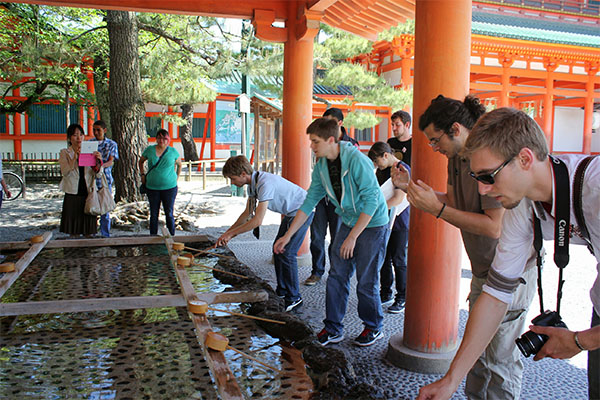Why study Japanese?
Japanese is the language of business and the language of culture. While Japan is known for its robust economy and its technological ingenuity, it has also had a profound influence on art, design, literature, film, and music.
Japan is a unique country with an ancient cultural heritage and history. An archipelago of over 6,800 mountainous islands topped by 12,000-foot tall Mount Fuji, only 18% of its terrain is inhabitable by humans and its total area is less than that of the state of California.
Japan may be geographically small but its engineering and technological advances in electronics and robotics, are huge, well-known, and highly respected, with a significant research and development budget and more Nobel laureates than any other Asian country.
Part of being an able communicator in Japanese means that you can read a host of non-verbal cues and you will quickly understand how language is not always spoken or written. Awareness of self and others is a vital part of communication in Japan.
Not a difficult language to learn, Japanese has simple pronunciation guidelines, with few exceptions, and a straightforward set of grammatical rules.
- Japan is the world's third largest economic power
- Japan’s GDP is larger than Germany, France, England, Italy, or Spain
- Japan is a world leader in energy, medical research, materials research, the environment, transportation, telecommunications, digital imaging, and other 21st century industries
- Japan has won 25 Nobel prizes in science in the last 25 years, and seven in the last five years
- Japan is the second largest investor in the US after the UK

Japanese Courses Offered
(3-2) 4 hours credit.
Fundamentals of Japanese offering the opportunity to develop basic speaking, listening, reading, and writing skills. Read and write Hiragana and Katakana. Introduction of Kanji and Japanese culture.
Fundamentals of Japanese offering the opportunity to develop basic speaking, listening, reading, and writing skills. Further study of Japanese culture and Kanji.
Continued opportunity to develop listening, speaking, reading, and writing skills through structural analysis of the Japanese language. Further study of Japanese culture and Kanji.
Continued opportunity to develop listening, speaking, reading, and writing skills through structural analysis of the Japanese language. Further study of Japanese culture and Kanji.
Offers the opportunity to develop advanced-level oral and written communication skills in the Japanese language, along with enhanced comprehension skills in listening and reading. May be repeated for credit when topics vary.
Offers the opportunity to develop speaking, reading, and writing skills in business fields. Emphasis on Japanese business manners and business terminology.
Selected topics of Japanese culture, such as Modernization, Westernization, current issues in U.S.-Japan relationships, contemporary cultural developments, or a linguistic topic. May be repeated for credit when topics vary.

Study Abroad
Learn more about your study abroad opportunities for Japanese!


